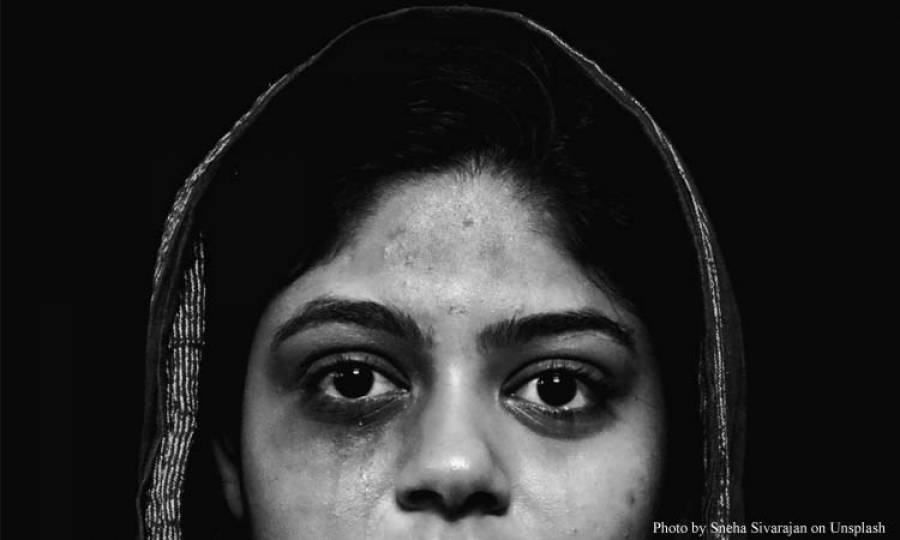Violence Against Pakistani Women Due To Power Imbalance: Experts

KARACHI: Women face violence because of an imbalance of power in society, said Professor Dr Khalid Mahmood Iraqi, the Vice-Chancellor of the University of Karachi, while addressing a conference on “Understanding violence against women in Pakistan – Causes and Trends” held at the Arts and Social Sciences Auditorium.
Although there is no doubt that all Pakistan citizens are equal, unfortunately, women are not treated like men in our society. We have observed a massive rate of domestic violence among women and children during the recent lockdowns imposed due to the Covid-19 pandemic in the country.
These views were expressed by on Thursday.
The KU organized the conference, the Centre of Excellence for Women’s Studies in Collaboration with UN Women and the KU Office of Research, Innovation and Commercialization.
He emphasized addressing the root causes for eliminating violence against women and reporting cases for implementing the laws in their true spirit. He urged parents that both genders must be nurtured equally from their childhood.
The KU VC Professor Dr Khalid Iraqi emphasized that cases must be reported to implement laws and legislation in the country; otherwise, solutions to the problem could not end violence against women.
Meanwhile, through the video link, UN Women Deputy Country Representative Jacqui Ketunuti shared that the trend of sexual harassment among women has reached alarming levels, which need to be addressed promptly. The policymakers must work together to find practical solutions to the problem of violence against women.
She mentioned that the conference theme was of orange colour, where she explained that orange colour depicts the bright future for women. She opted for a bright future for women in Pakistan to end all forms of violence against women.
Jacqui Ketunuti said that civil society, the private sector, and community representatives could be proven productive in ending violence against women.
Another speaker, the Chairperson Pakistan Institute of International Affairs, and President Aurat Foundation Dr Masuma Hasan, while delivering the keynote address on reasons for increasing violence against women in Pakistan, talk in detail about violence and types of violence.
She briefed that femicide is most common around the globe, India is being called the rape capital of the world, and the ratio of violence among girls and women has been increased in Covid-19. Dr Masuma Hasan mentioned that developing nations had provided helpline numbers for reporting the violence-related cases during the lockdown and open shelter homes for victims.
She informed the audience that killing women in some Latin American countries is common, and women feel more insecure. The relatives or neighbours are often involved in the rape and murder of women and children. She shared that each year around 1000 women in Pakistan are killed in the name of honour.
Dr Masuma also discussed the situation of Pakistan, where girls’ children were abused. Their bodies were found in the garbage. The Zainab case was similar. Honour killing and kidnapping are common while settling family disputes, blackmailing through the internet. Cybercrime is increasing faster pace nowadays, which is brutally damaging the socio-economic condition of women in Pakistan.
According to her, the Hudood Ordinance is an obstacle for women while providing legal aid. In this law, women are convicted of adultery when she is unable to prove the rape. Furthermore, under this law, the marriage age is 18, but many child marriages have still occurred in our country.
“Though we have laws where the culprit will have fine and imprisonment due to underreporting, they are not implemented. We have an alarming rate of suicide where women feel stigmatized and avoid facing people and committing suicide.”
Earlier, the Dean Arts and Social Sciences Professor Dr Nusrat Idress said that women faced violence inside and outside the house. The majority of cases do not report because we are failed to stop this menace from our societies.
She has mentioned the causes of violence, for instance, lack of social, economic, and political support. Meanwhile, referencing the World Economic Forum report, she mentioned that Pakistan stands at 153 out of 156 countries in Global Gender Gap 2021, which is considered the worst among the regional countries.
Professor Dr Anila Amber Malik of the KU Department of Psychology said that violence against women is rising in modern societies, and its effects on women’s mental and physical health are increasing. “Violence against women can be stopped only by raising voice against violence instead of remaining silent. Only by providing rights and empowerment to women based on equality can the formation of a healthy society be ensured.”
Presenting her research paper, Professor Zainab F. Zadeh from the United Kingdom said that 736 to 852 million, or one in three women aged 15 years and above, have experienced violence at least at the World Health Organization once in their lives.
She shared that the Pakistan Demographic and Health Survey report shows that 34 per cent of ever-married women have experienced spousal physical, sexual, or emotional violence, and seven per cent of women who have ever been pregnant have experienced violence during pregnancy.
Dr Naima Saeed and Lt Col Rana Atif from the Department of Criminology at the University of Karachi give situational analysis on gender-based violence concerning Pakistani society. They shared that nearly six of 10 women around the world suffer some violence in their lifetime.
Rehman, Resident Director, Aurat Foundation, presented a paper on social and economic reasons for violence against women.
Trending
Popular
Sindh pledges vigorous action to prevent poliovirus transmission
-
PMA stresses health equity on World ...
04:08 PM, 9 Apr, 2024 -
Dow University’s new rabies vaccine ...
12:18 PM, 28 Mar, 2024 -
IRD role lauded in advancing ...
02:53 PM, 12 Mar, 2024 -
Over one billion people worldwide ...
09:48 AM, 5 Mar, 2024




